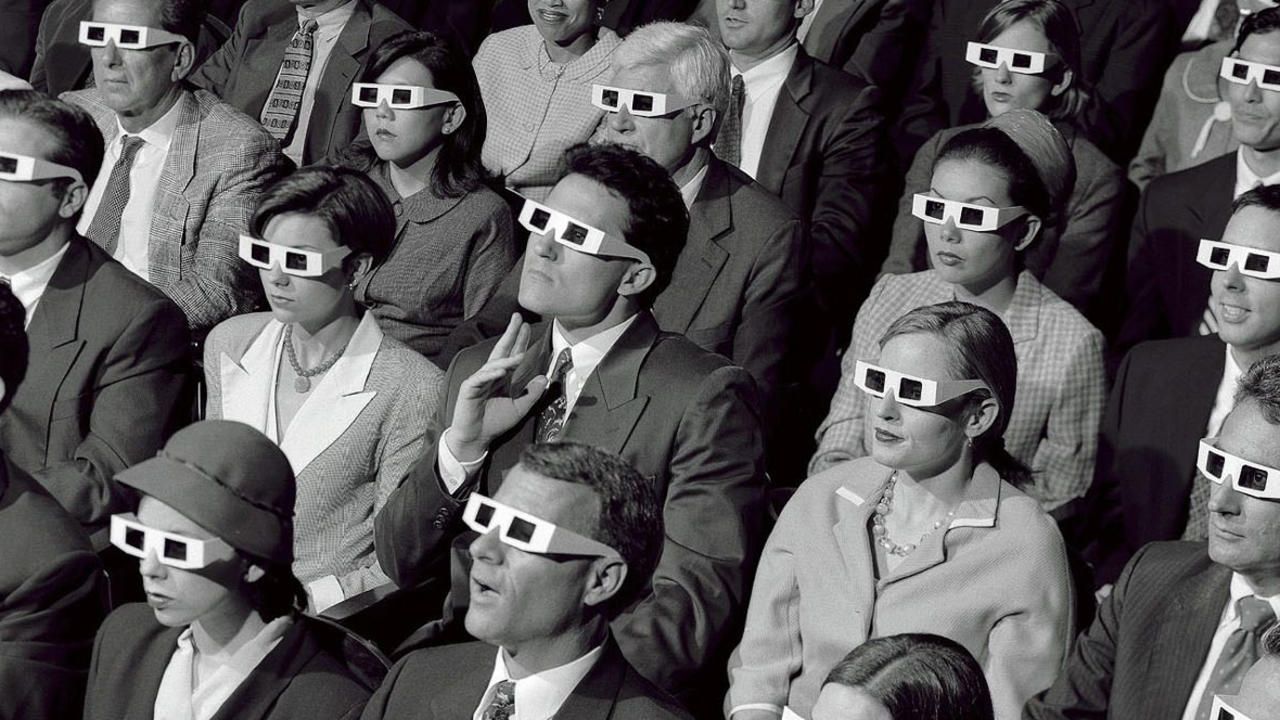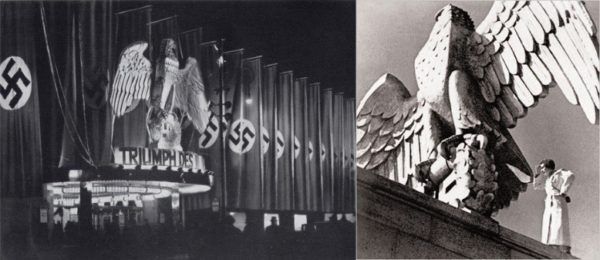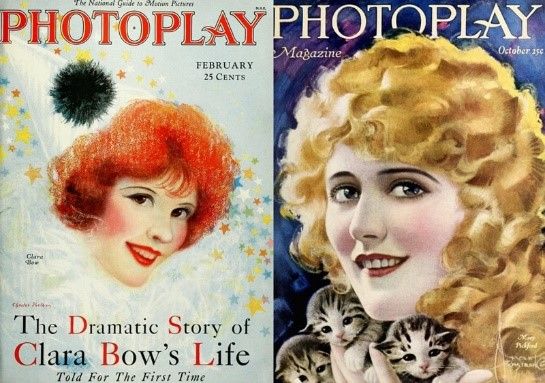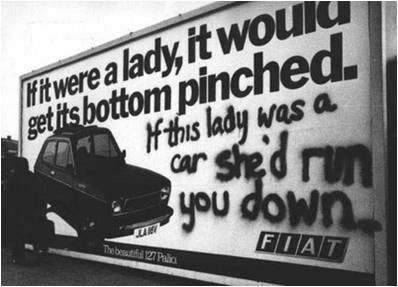
如果您對馬克思主義有興趣而想學習或研究,或者可以為翻譯馬克思主義的文章作出貢獻,我們真誠地歡迎您的加入。 網址:https://www.marxists.org/chinese/index.html 臉書:https://www.facebook.com/marxists.internet.archive.chinese
Guy Debord and his spectacle theory (Guy Debord and the spectacle)
(UK) Phil Hearse
Translated by Boyue and Principal by Bai Meng

Phil Hess looks back at the work of a Marxist theorist from the 1960s whose work has never been more important.
"Undoubtedly, Debord's greatest achievement was his theory of the 'spectacle', first proposed in The Society of the Spectacle, published in 1967. The castration of the spectacle hypnotizes the needs of society. We are all slaves to the spectacle. Consumerism, entertainment , escapism, work and politics became the spectacle. In 2001, the spectacle became terrorism, like a terrorist 'Spectacular'. Today the spectacle is cut off from the real world We live in a world jointly constructed by virtual reality and social media, a man-made unknown and absurd world, as if falling into the rabbit hole in "Alice in Wonderland", everything is virtual, and in it, You only see the trees, but not the forest."
-- Luke Haines [ [1] ]
"Guy Debord is like a ticking time bomb that cannot be dismantled. Some people try to dismantle the bomb, weaken his influence, or glorify him, or deny his creativity, until now. Attempts have been made, but those attempts have failed. The bomb is still powerful, and anyone who picks it up and tries to defuse it could trigger it to explode."
-- Michael Löwy [ [2] ]
Debord's The Society of the Spectacle ( The Society of the Spectacle , 1967) [ [3] ] is the pinnacle of 20th-century Marxists' study of the bourgeois means of consciousness, the use of which the bourgeoisie first Capitalist countries have dominated or attempted to dominate the consciousness of the broad masses of the world today.
Antonio Gramsci was the first to study this field and came up with the concept of "hegemony" [ [1] ] (almost what the word means to rule). By force and with the consent of the majority of the people (either reluctantly or for other reasons), the bourgeoisie is able to exercise its hegemony and the people are educated to believe that capitalist society is just or inevitable.
Gramsci believes that the bourgeoisie obtains the consent of the people through the "civil society" it dominates, including various ideological ruling mechanisms, such as the church, the educational system, the popular press and other media, the legal system, and mass political parties. In addition to directly controlling the state apparatus, the bourgeoisie also spread bourgeois ideology together with the family. Together, they forged "common sense" in favor of capitalists.
However, Gramsci's work was written in the 1920s and 1930s, when consumer capitalism and broadcast media were in their infancy. He was born at the wrong time and did not have the time to think about how different forms of mass consumption and media change the course of ideological domination, and the way working and other classes of the masses "see" the world - both literally and metaphorically "observe".

By the early thirties, major changes had taken place in the representation of mass media and politics, changes that produced a new, more dramatic, all-encompassing picture of the world. These included changes in political mobilization, and a remarkable breakthrough in the mass-market movie market when "talkies" arrived.
The Nazis took and developed the iconographic symbols of the labor movement (red flags, mass demonstrations) and took them to a new level. This joins the film in Leni Riefenstahl's 1935 documentary Triumph of the Will , which documents the 1935 Nuremberg Rally.

At the same time, major film studios introduced new models of celebrity culture, creating film magazines dedicated to personal gossip. During the years of the Great Depression and mass poverty, a comforting dream world of riches and fame was created, of becoming a movie star and socializing with the wealthy, such as businessmen and sports stars (who were the first modern celebrities).
Debord's landscape
Society of the Spectacle was published during the postwar boom that produced a host of new consumer goods and a world of television, film, pop music, advertising, and fashion. The living world of the masses [ [4] ] is more and more shaped by commodities and scenes. This is inspired by celebrity culture and its fundamental medium - photography. By the late sixties, hundreds of millions of people could identify Elvis Presley, Muhammad Ali, Marilyn Monroe, The Beatles, Jackie Kennedy, and others from photographs and news clips There are many such people.
This, Debord argues, created a new phase of capitalism in which a multitude of consumer goods and images merged to create a series of "landscapes" which in turn merged to create one gigantic landscape.
In the student movement of the 1960s, the concept of the commodity landscape of late capitalism was all too common. But some of the theoretical formulations in Debord's 1967 text are arguably exaggerated. His first article in The Society of the Spectacle says:
In a society where modern production methods prevail, all life is presented as a pile of landscapes. All living things become an appearance . (my emphasis)
Apparently, what was once there has not become apparent. There are pictures of wars, and there are real wars. There are images of car accidents, and there are real car accidents. There are images of factories and real factories. More precisely, our participation in social reality and our understanding of it are both modified and even dominated by the presented landscape.
French postmodernist philosopher Jean Baudrillard took Debord's ideas a step further by claiming that everything today is spectacle, that spectacle precedes reality, and had the audacity to say that the infamous Gulf War never happened . In so far as Debord tends to regard spectacle as more important than reality, he errs, or exaggerates too much. But the exaggeration does serve a purpose.
After expressing this point in the previous paragraphs, Debord's later statement is more accurate:
" The spectacle is the part of society that concentrates all gazes and the focus of all consciousness. In fact, it is divided, conveying deceit and false consciousness, and the unity it achieves is nothing more than the official language of a general division... A landscape is not a collection of images, but a social relationship between people mediated by images. " (my emphasis)
Debord's materialism
More accurate and convincing is the following passage, which I believe to be at the heart of Debord's theory:
"To grasp the landscape as a whole, it is not only the result of the modern production mode, but also the theme of the existing production mode. It is not a supplement to the real world, but an additional decoration. It is the root of the unrealistic reality of the real society. The landscape is currently dominated by sociality. The mode of life, in all its specific forms, information or propaganda, advertising or direct entertainment consumption. It is an omnipresent affirmation of the choices already made in production and its corollary consumption. The spectacle occupies the Most of the time, in both form and content, it justifies the conditions and aims of the present capitalist system. The spectacle itself is also a permanent representation of this rationality."
It is clear from the above paragraphs that Debord does not hold an idealist standpoint. He does not think that everything is a spectacle or a spectacle. On the contrary, he understands the spectacle as an integral part of modern production and consumption, and is the key to the world of public life. In part, it is an ideological complement to "real" commodity production.
However, today's situation is far beyond Debord's time, and the expression of the previous sentence must be revised. In a sense, more and more commodities are themselves part of the landscape. Movies, magazines, online games, photography websites, and various websites account for an increasing proportion of commodities.
Fashion is an example of commodity visualization, with hundreds of thousands, perhaps millions, subscribing to fashion websites and buying fashion magazines. They know all the most famous models and brands, they watch fashion shows on Google. They may never buy any of the clothes on display (or even see them in real life), but that's beside the point. The spectacle of fashion shows is to show themselves, to cast their own dreams and their own spectacle world. Of course, fashion is also a focus of the spectacle in other ways, since the main nature of fashion is one of showing off rather than demonstrating clothes that are useful and comfortable.
An important point we need to mention again is that not all images, those being created in the media of the existing spectacle, support the status quo or the deception of capitalism. Arguably the first television war, the Vietnam War unveiled genocidal atrocities for millions. It may also explain why the U.S. military is so keen to control media coverage from Iraq and Afghanistan.
The Dream World: Spectacles and Mystifications
Debord's concept of spectacle is vague and contradictory. Is spectacle a scene of the world, or everything in a sense? Steve Best and Douglas Kellner comment:
"In a broader definition, educational systems and representative democracies, as well as consumer gadgets, sports, media culture, urban and suburban architecture, and design, are all part of the society of the spectacle. For example , schooling involves sports, fraternity ceremonies, bands and parades, and various public gatherings that indoctrinate individuals with the prevailing ideology. Stylized methods of education include rote memorization and mechanical memorization of facts taught by babbling teachers, in multiple-choice are constantly being disciplined in exams, which are very effective in stifling creativity and annihilating the joy of learning. Today, video technology used in classrooms can reinforce this negativity and create a spectacles and commodification of education, TV news in Interspersed with commercials from corporate sponsors, such as the Whittle Company's Channel One, it airs in thousands of schools across the U.S. Of course, contemporary politics also fill the spectacle, from everyday 'photograph moments' to orchestrated future State power dramatization of special events, to scheduled candidates for television commercials and image management." [ [5] ]
I disagree with this claim that the spectacle is everything, which risks conflating the spectacle with social practice in general. In Debord's Comments on the Spectacle ( Comments on the Spectacle, 1988 ), he distinguished between a "concentrated spectacle" and a "diffuse spectacle".
Roughly speaking, centralization means the highly centralized and controlled landscape presented by totalitarian dictatorships, while decentralization is a typical feature of popular culture in capitalist democracies. By 1988, Debord believed that the two were merging into an "integrated landscape" in which "the landscape mixes and illuminates all realities". Thus, he speaks of "the judicial landscape, the political landscape, the educational landscape, and the recreational landscape."
Undoubtedly, his examples encompass all aspects of the spectacle, and Donald Trump (as well as Barack Obama and other leading politicians) perform perfectly within the notion of the spectacle. But is everything that happens in the classroom, lecture hall, or foyer really part of the landscape? The contradictions in Debord's narrative may reflect contradictions in reality. Perhaps it would be better to say that although the spectacle centers on the world of images and commodities, and thus especially mass media, advertising, and those elements of social life directly affected by them, this is not the whole of social reality—and this is of course also open to criticism. And the boycott leaves room.
celebrity culture
Celebrity culture is a key part of the modern capitalist landscape, in fact it is the climax of the landscape. Celebrities market a lifestyle of spectacle, a dream world that leaves the masses dumbfounded and never realized. They market a vast array of merchandise, including their own images. In fact, there are plenty of celebrities who are famous just for being famous — Kim Kardashian, Amber Rose, Stephen Baldwin, and Paris Hilton are just a few Famous example.
Of course, celebrity and the masses have a symbiotic relationship. Publicity is the lifeblood of celebrities, but also many media outlets are completely dependent on the existence of celebrities. Magazines like Heat and Now! probably couldn't survive without celebrities.
Entire news genres are built around newspaper gossip columns and "showbiz news" slots, which often only contain press releases from celebrity publicists. Celebrity gossip and sports are staples of the mass media. Without celebrities, there would be no Jonathan. Ross show (Jonathan Ross) or Graham. The Graham Norton Show, no Strictly Come Dancing and I'm a Celebrity Get Me Out of Here! Celebrity culture is made up of a bunch of publicists and stylists. It drives the promotion of fashion, cosmetics and fragrances. (Many celebrities have their own brands, top celebs like David Beckham and Kim Kardashian have several.) Most importantly, celebrity is closely integrated with advertising.
Best and Kellner accurately explain the role of celebrity in constructing one's style and identity:
"On the other hand, the philosophizing of reality separates thought from action because it idealizes and materializes the world of spectacle. It transforms lived experience into a spectacular and dazzling universe of images and symbols in which the individual does not construct himself Instead, they focus on the glossy appearance of the commodity world, and define themselves with a commodity that comes from the consumption, image, appearance, and temperament of the spectacle world. The audience of the spectacle also projects itself into a world composed of stars, celebrities and stories. In the fantasy world of , individuals make up for lost lives by identifying with sports heroes and events, movie and TV personalities, and the lifestyles and scandals of the rich and notorious.
Individuals in the society of the spectacle construct themselves according to the image, appearance, and temperament of famous people. Media personalities are icons and role models, emulated and adored by spectacle dreamers. But this is precisely the ideal of a consumer society that promotes capital accumulation by expressing individuality in terms of image, thereby forcing people into the clutches and clichés of the fashion, cosmetics and fashion industries. Subjects hypnotized by the spectacle move farther and farther away from direct emotional realities and desires, and closer to bureaucratic consumerism: 'The more [a person] thinks, the less he lives; the more he Knowing himself in the dominant image of need, the less he becomes aware of his own being and his own desires... His gestures are no longer his but those of another who represents him' (Debord, assertion 30 ). The world of spectacle thus becomes the "real" world of excitement, pleasure, and meaning, while everyday life is despised as trivial by comparison. In the abstract society of the spectacle, the spectacle thus becomes the highest form of commodity reification: 'The spectacle is capital, accumulated to such an extent that it becomes a spectacle' (Debord, assertion 34)"
As we have discussed in previous articles, neoliberal capitalism overcomes its inherent tendency to suppress mass consumption through debt. As we saw with the 2008 financial crisis, this in turn creates an inevitable cycle of crises as debt becomes unsustainable. Most of the debt piled up by the public has become the gold mine of monopoly giants (such as Amazon, Google, Apple, etc.). The only effective investment channel for the latter is the all-impact, overwhelming grotesque advertising.
The entire landscape is one giant advertising campaign promoting an ideal consumerist lifestyle around homes, cars, fashion, digital devices and content, health and fitness, and plenty of flying to experience foreign cultures. Even the poorer working-class people who have little access to this idealized landscape lifestyle can experience it gratuitously in digital content.
Debord and Revolutionary Tactics
Guy Debord was a central figure in the founding of the Situationist International [ [2] ], a small organization that adopted a circuitous ( flanking ) approach to confrontation. But actually, it's hard to do that because it's so small. Detour means creating a scenario in which capitalism can be outflanked and unmasked. Primarily a cultural/propaganda exercise, it can hardly be a political tactic of a labor movement or a movement of the oppressed - although it may be a component of it.

Arguably the most prominent practitioner of detours today is the graffiti artist Banksy. Whether depicting the grotesque or the banal, he often uses irony and sarcasm to change the scene and critique capitalist realities. Whoever Banksy is, I doubt he will claim his detour as a tactic in the struggle against capitalism. But neither Banksy nor Debord is the point. The point is to lift the veil of the landscape, call it out, and remind people of the need to struggle to have different ways of seeing and doing events by introducing them to socialist ideas.
The society of the spectacle is a critique of the everyday life of the masses in late capitalism. The most basic popular critique of consumerist everyday life has emerged in a way that might have surprised Debord—the environmentalist movement. Apple Computer and Zara (Zara) fashion and Disney's digital content have built a system together, and environmental protection policy is a dagger at the heart of the system. Among the priorities advocated by the environmental movement, landscape has no place at all.
June 4, 2021
Note:
[[1]] Translator's note: Hegemony is the core concept of Gramsci's "Miscellaneous Notes from Prison", and some scholars have translated it as hegemony. Refers to the unique sphere of civil society in the sphere of the superstructure that occupies and controls the entire society through such hegemony. [[2]] Translator's Note: Situationist International (French: Internationale situationniste, abbreviated as IS; English: Situationist International, abbreviated as SI) is a group of avant-garde artists, intellectuals and political theorists self-proclaimed) left-wing international organization. The organization was founded in 1957 and disbanded in 1972, mainly in Europe. The organization is considered to be an intellectual matrix that has had an extremely important influence on the European modern and contemporary avant-garde art and radical philosophical discourse. --Wikipedia
[[1]] Luke Haines, 1968 and All That
https://www.spectator.co.uk/2018/07/how-situationism-changed-history/
[[2]] https://www.radicalphilosophy.com/article/consumed-by-nights-fire
[[3]] https://www.marxists.org/reference/archive/debord/society.htm
[[4]] https://en.wikipedia.org/wiki/Lifeworld
[[5]] https://pages.gseis.ucla.edu/faculty/kellner/IlluminaFolder/kell17.htm
Phil Hearse is a member of Anti*Capitalist Resistance in the UK and co-author of the books Creeping Fascism and System Crash author.
Original link: https://anticapitalistresistance.org/guy-debord-and-the-spectacle/
Like my work?
Don't forget to support or like, so I know you are with me..
Comment…